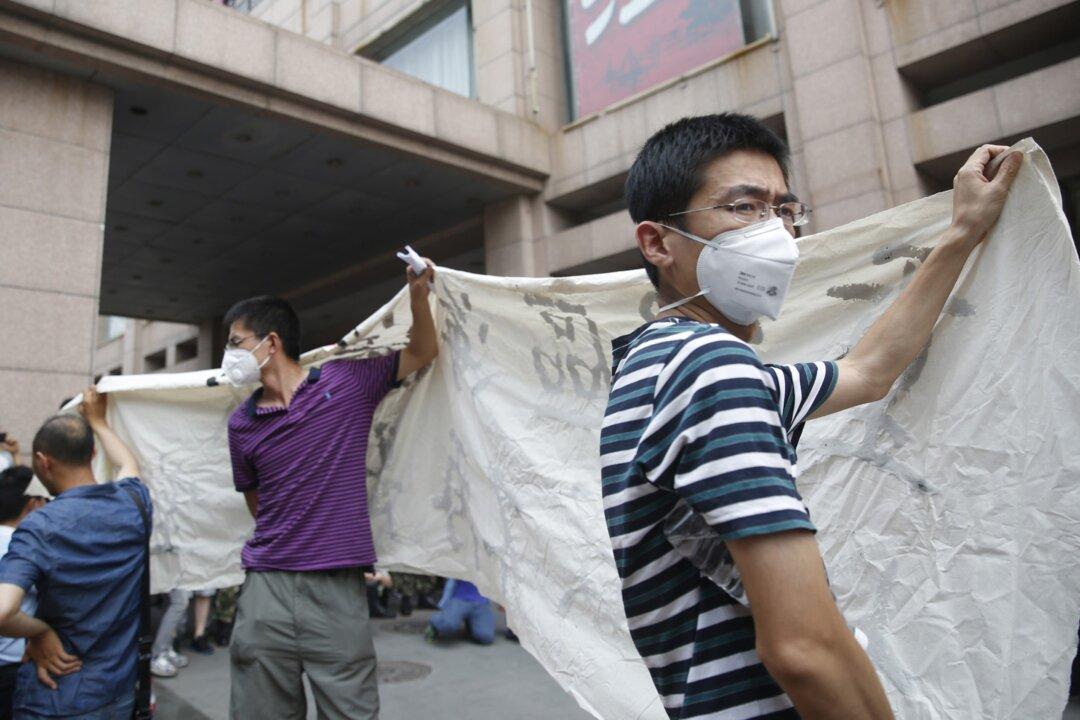Four months after a series of massive explosions in the Chinese port of Tianjin reduced buildings to rubble, victims are still waiting for relief. They fear chemical contamination, and the state compensation they counted on has not been forthcoming.
“No one can work here. I sent away the workers several months ago. I’ve been waiting for state aid, but it hasn’t come,” said Mr. Zhao in an interview with Deutsche Welle. Central heating in his factory was damaged, and plastic cloth has been used to cover a large hole 10 feet in diameter.
Those who lost their homes and assets in the disaster may remember the awe-inspiring moment when they escaped with their lives. Since then, they have faced a hard slog of seeking their rights to compensation. They report being offered nothing at all, or a sum far below any reasonable standard.





